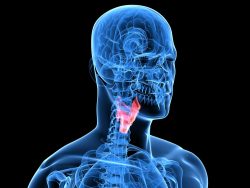 Through the combination of physics, chemistry, engineering and biology, researchers have developed a biomaterial that is strong enough to repair muscles, vocal cords and the heart. This is a significant advance in regenerative medicine.
Through the combination of physics, chemistry, engineering and biology, researchers have developed a biomaterial that is strong enough to repair muscles, vocal cords and the heart. This is a significant advance in regenerative medicine.
It is a difficult to recover from damage to the heart and vocal cords. The healing process can be a challenge. This is due to the constant tissue movement which has to withstand the beat of the heart or the vibration of the vocal cords. Until now there was not an injectable material that was durable enough to solve this problem.
The researchers developed an injectable hydrogel for wound repair. It is a type of biomaterial that provides an area for cells to grow and live. After injection into the body it forms a porous, stable structure. This allows the growth of live cells which then pass through the material into the injured organ in order to repair it.
To test the strength of the hydrogel, the team used a special machine to mimic the extreme biomechanics of vocal cords. It vibrated at 120 times per second for more than 6 million cycles. The newly developed hydrogel remained intact while current hydrogels fractured into pieces as they were unable to handle the load stress.
The test was a success. Prior to their research, no injectable hydrogels combined both toughness and high porosity. To solve this problem, a pore-forming polymer was added to their formula.
They hope that the hydrogel can be used in the future for implantation in people with vocal cord damage to restore their voice.
The new work opens up avenues for a variety of other applications such as tissue engineering, drug delivery and creating sample tissues for the screening of drugs.
This demonstrates the synergy of mechanical engineering, materials science and bioengineering for the creation of novel biomaterials with exceptional performance. They are looking forward to testing them in the clinic.
Click here to view the original scientific study:
Injectable, Pore-Forming, Perfusable Double-Network Hydrogels Resilient to Extreme Biomechanical Stimulations





